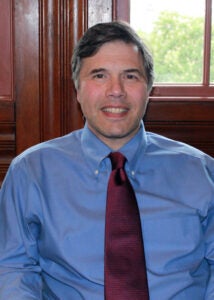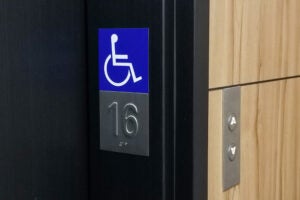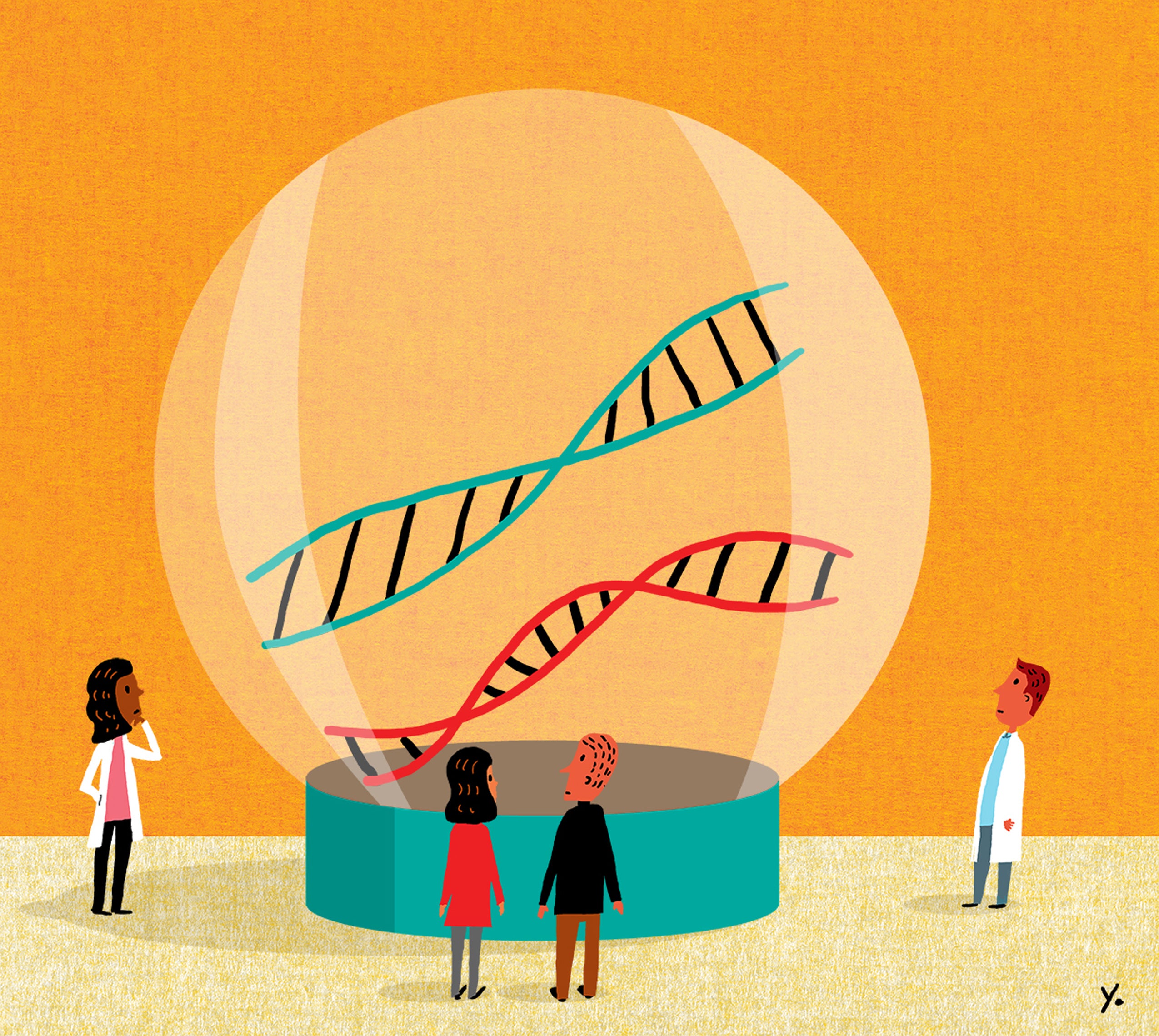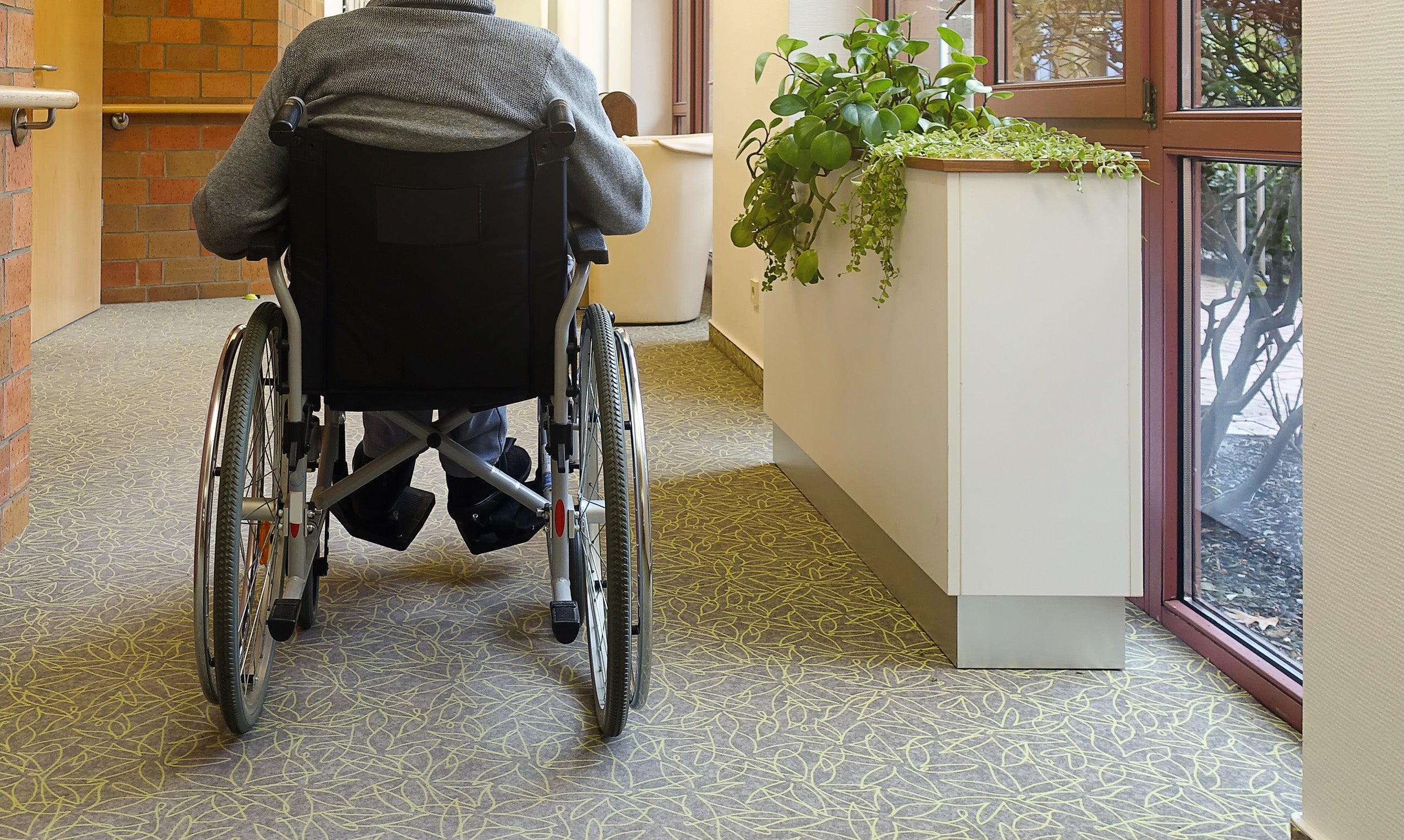People
Michael Ashley Stein
-
Michael Ashley Stein receives award from the United States International Council on Disabilities
December 6, 2023
Michael Ashley Stein ’88, executive director of Harvard Law School’s Project on Disability (HPOD) and Harvard Law visiting professor, received the prestigious Dole-Harkin award from the United States International Council on Disabilities (USICD).
-
People with disability more vulnerable to climate change
November 27, 2023
People with disability have the ‘right to the full and equal enjoyment of all human rights and fundamental freedoms’, in accordance with Australia’s international obligations…
-
Supreme Court preview: Acheson Hotels, LLC v. Laufer
September 25, 2023
Harvard Law Professor Michael Ashley Stein says the Supreme Court will consider whether ‘stigmatic harm’ is enough to qualify for standing under the Americans with Disabilities Act.
-
From massive floods, to sweeping hurricanes, to raging wildfires, climate disasters seem constant. Last November, the United Nation’s climate conference, COP 27, grabbed global headlines…
-
Harvard Law School faculty members Michael Ashley Stein and Alexander Chen were recognized in May at affinity celebrations honoring graduates.
-
Disability in a time of climate disaster
January 19, 2023
Harvard Law’s Michael Ashley Stein is ‘calling for systemic and urgent disability inclusion’ in climate resilience planning.
-
An article co-written by Michael Ashley Stein: The law presumes that individuals are rational. The reasonable individual, a hypothetical figure whose actions judges and juries…
-
Miami man shot, left in ‘vegetative state.’ Now, his insurer is cutting back critical care
February 15, 2022
Nearly nine months ago, Andy De Leon was shot in the head in an ambush in West Miami-Dade. The man accused of the shooting, a jealous security guard who worked at a zoo featured on the Netflix “Tiger King” series, remains jailed awaiting trial. De Leon, 30, once a vibrant physical therapy assistant, remains in a bedridden “vegetative state,” awake and breathing on his own, but unable to speak or move. ... The family’s frustrations are not unusual, said Michael Ashley Stein, a professor and executive director of the Harvard Law School Project on Disability. Because the health-care system and policies have been created piecemeal over time, he said, various agencies don’t always “interact well and people fall through the cracks.”
-
Faculty Books in Brief: Winter 2022
January 31, 2022
A wide range of books by faculty, from a collection of essays on the ethics of consumer genetic testing to a look at the fate of constitutional institutions in populist regimes to a delightful children's book by a legal philosopher
-
On the bookshelf
November 30, 2021
Here are some of the latest from HLS authors to add to your reading list over the holiday break.
-
COP26 incident shines light on impact of climate change on disabled
November 5, 2021
An Israeli cabinet minister’s inability to access the COP26 climate summit in her wheelchair has fueled criticism that the conference is part of the problem on many of the inequalities it was meant to address. Karine Elharrar, Israel’s Energy Minister, uses a wheelchair due to muscular dystrophy and was unable to access an entrance at the summit Monday. “It’s sad that the United Nations, which promotes accessibility for people with disabilities, in 2021 doesn’t worry about accessibility at its own events,” Elharrar tweeted. ... “It’s of course unfortunate that [Elharrar] was left out… and it’s right that attention’s being paid to it, but what’s really more of an issue is the way people with disabilities have been left out of the climate change agenda and dialogue,” said Michael Stein, executive director of the Harvard Law School Project on Disability. “Although we’re all going to suffer, and do suffer, from climate change, right now and in the future, the mortality rate for people with disabilities from natural disasters is as high as four times that of non-disabled persons,” he added.
-
Investigating mask mandate bans
September 13, 2021
Michael Ashley Stein ’88, executive director of the Harvard Law School Project on Disability, says the Department of Education should go beyond the Americans with Disabilities Act in investigating state bans against mandating face coverings in schools.
-
Knowing that people with disabilities would be especially vulnerable during the pandemic to problems with healthcare access and other issues, the Harvard Law School Project on Disability turned its attention early on to COVID-related initiatives and advocacy.
-
Founders of Harvard Law School Project on Disability honored by the president of Ecuador
March 18, 2021
Visiting Professor Michael Ashley Stein ’88, executive director of the Harvard Law School Project on Disability, and Professor William P. Alford ’77, who cofounded the project, known as HPOD, were awarded the National Order of Merit by the president of Ecuador on March 8, in recognition of their work on disability.
-
Thirty years ago, East and West Germany reunited after the fall of the Soviet Union. It was 1990, the same year The World Wide Web debuted, plus singer Mariah Carey’s blockbuster hit, "Vision of Love," kicked off her career. And President George H.W. Bush signed into law the Americans with Disabilities Act (ADA) banning discrimination against millions of Americans in education, transportation, and public accommodations. Three decades later, the 1 in 4 adult Americans with disabilities have benefitted from the ADA’s protections. But the benefits are being threatened by the wide-ranging impact of COVID-19, and by the ever-widening inequities in health care and employment. In this 30th anniversary year of the passage of the ADA, the disability rights movement looks back to the bill’s legacy and ahead to new challenges. Guests: Kristen McCosh, commissioner of the Disabilities Commission for the City of Boston. Michael Stein, executive director of the Harvard Law School Project on Disability and visiting professor at Harvard Law School. Jeffrey Yasuo Mansfield, design director at MASS Design Group and a Disability Futures Fellow. Plus, American Sign Language (ASL) interpreter, Aaron Wegehaupt, joined to facilitate communication between everyone.
-
Asthmatic Worker Gets Covid-Related Telework Order, For Now
September 18, 2020
An asthmatic employee may work from home due to the Covid-19 pandemic, and their Massachusetts employer can’t force them to return to the office, a federal judge ruled, barring the worker’s termination for at least 60 days. In a rare instance of a worker seeking a preliminary injunction in a disability bias case, social worker Gabriel Peeples showed that they’re likely to prevail on the merits of their claims under federal and state law, the U.S. District Court for the District of Massachusetts ruled Wednesday, using the non-gender specific pronoun to refer to Peeples. The decision provides early evidence about how the pandemic can alter Americans with Disabilities Act cases, during both the current phase of the pandemic and a future when the virus is under control. “Employers who previously and staunchly maintained that the essential job functions simply could not be performed away from the office will now face months of evidence of telecommuting that worked well,” said Michael Stein, law professor and executive director of Harvard Law School’s Project on Disability Courts will also have to reconsider the scope of what respiratory-related impairments rise to a level of being classified as a disability under the ADA, Stein said. The ruling also highlights the impact of the pandemic on the legal test for winning an emergency order. Beyond showing that they’d be likely to win on the merits, the court found that Peeples could suffer irreparable harm by losing their job in the middle of a pandemic. The court also said public health concerns weighed in Peeples’ favor, because the mental health counseling the plaintiff provides. Stein and two other legal scholars told Bloomberg Law that they’d never seen another request for preliminary injunction in an ADA employment case.
-
COVID-19 is a disaster for people with disabilities. Without 30-year-old law, it would be worse
July 27, 2020
The isolation can be terrifying and tragic. The stress can exacerbate mental illness and other health problems. Add the loss of mobility and independence, the disruption of routines: the beloved caregiver who doesn't come, the day program that doesn't open, the concern that lack of support will give families no choice but to institutionalize. In the hospital, people who can't speak are left with no one to communicate for them, vulnerable to the fear medical care will be rationed, given to someone deemed more worthy or valuable than themselves. Though everyone has been suffering during the COVID-19 pandemic, people with disabilities have perhaps been the most disadvantaged, their lives the most disrupted...The Americans with Disabilities Act, signed on July 26, 1990, by President George H.W. Bush, guarantees equal protection for people with a wide range of disabilities, from mental health issues to physical challenges. It was modeled after the 1964 Civil Rights Act, providing equal access to government services, schools, buildings, private employers and commercial facilities. "We are in a much better place in 2020 than we were in 1990. Dramatically better," said Michael Ashley Stein, co-founder and executive director of the Harvard Law School Project on Disability and a visiting professor at Harvard Law School. Although the ADA has made a profound difference, it hasn't removed all prejudice against people with disabilities – any more than the Civil Rights Act resolved all bias against Black people. “Other than rare instances of overt animus, most of the discrimination we see towards people with disabilities in this country tends to be from what we call ‘malign neglect,’” Stein said. "It's not that we're trying to exclude them from opportunity, it's that we didn't even bother to consider them eligible or worthy of opportunities." The ADA, like other civil rights laws, Stein said, "puts the burden on the oppressed to make changes," requiring an endless fight to protect those rights.
-
30 years of the Americans with Disabilities Act
July 24, 2020
This Sunday marks the 30th anniversary of the day the Americans with Disabilities Act was signed into law, making it illegal to discriminate against people living with disabilities in regard to employment and access to government services. The Gazette spoke with Michael Ashley Stein, J.D. ’88, co-founder and executive director of the Harvard Law School Project on Disability, to learn more about the significance of the ADA and what it has meant for the people it protects over the past 30 years. Stein also addressed what Harvard has done since then to expand accessibility on its campuses, and provided perspective on what challenges and opportunities lie ahead.











